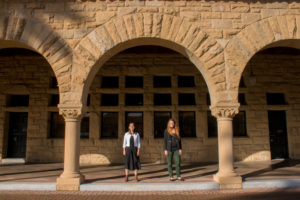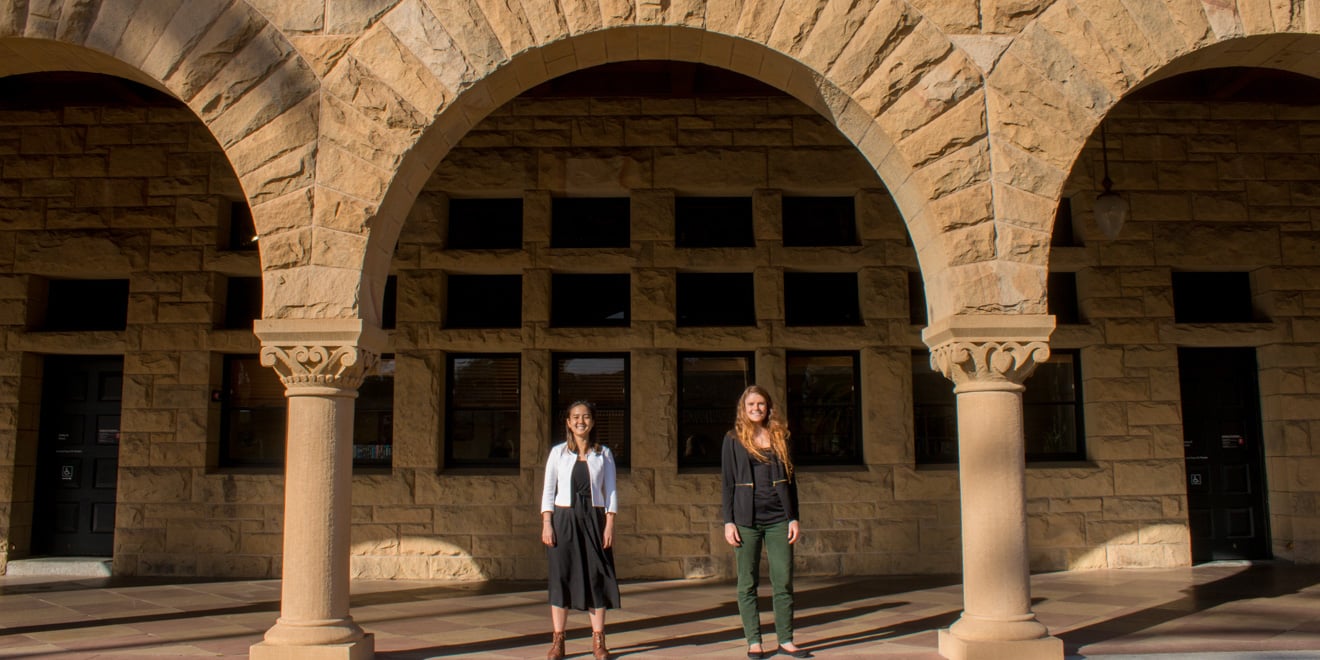Rebecca Bromley-Dulfano ’18 and Zhi Ping Teo ’18 have dropped out of the race for ASSU Executive following would-be vice president Teo’s decision to take a medical leave of absence spring quarter.
Bromley-Dulfano and Teo, who were endorsed by the Women’s Coalition and by the First Generation and/or Low Income Partnership (FLIP), withdrew slightly over a week before ASSU elections, which will take place April 13 and 14. Teo will return to campus in the fall, Bromley-Dulfano said, but election rules precluded them from continuing their campaign or replacing Teo with a new vice presidential candidate.

Bromley-Dulfano and Teo originally thought that they could add a note to the election ballot saying Teo would be absent spring quarter. But according to Elections Commissioner Paul Serrato ’19, student slates running for exec must be members of the Associated Students of Stanford University (ASSU), which is defined as being a registered student. The University does not consider students who are taking a leave of absence as “registered,” meaning that when a member of a slate takes a leave of absence, the slate is no longer eligible to run.
Slates have until April 5 to decide to drop out, the date upon which Bromley-Dulfano and Teo withdrew their candidacy, said Serrato. According to Bromley-Dulfano, groups that had endorsed her and Teo expressed interest in a modified slate with Bromley-Dulfano and a new running-mate. However, as Serrato explained, exec slates are not able to replace candidates after petitioning season ends because the candidates gather students’ signatures for specific slates in order to run.
“We’re sympathetic to the situation at hand, but at the same time, we need to make sure that the people who are running are eligible to run,” Serrato said.
Four slates remain: Sean Means ’18 and Pablo Lozano ’18, Khaled Aounallah ’19 and Michael Ocon ’20, Justice Tention ’18 and Vicki Niu ’18 and, finally, the joke “Stanford Flipside” slate, made up of Jason Seter ’18 and Deedee Anderson ’19.
While Bromley-Dulfano said she and Teo were disappointed they had to exit the race, she emphasized that they would continue to advocate for the issues and reforms raised in their platform. Their specific objectives were organized into three broad goals of “emotional equity,” “physical justice” and “social inclusivity” — phrases that Bromley-Dulfano acknowledged sounded “lofty” but that she believed she and Teo took a practical approach to working toward. She encouraged students to look over the ideas they outlined even though the platform is no longer in contention.
“Scattered makes it sound uncollected,” Bromley-Dulfano said to describe her and Teo’s platform. “But it was very broad. We were just trying to pay attention to what communities had defined as needs for themselves.”
Together, the former exec hopefuls brought campus experience working on what Bromley-Dulfano called “big issue areas,” including sexual assault and mental health. Bromley-Dulfano founded the Mental Health and Wellness Coalition as well as We Continue, a group dedicated to suicide prevention. Teo cofounded a peer support group for survivors of sexual assault. Both served on ASSU’s Mental Health and Wellbeing Committee.
The slate’s priorities ranged widely, from increasing sustainability and supporting low-income and first-generation students to improving queer and transgender health care on campus and many other initiatives.
As Elections Commissioner, Serrato praised the range of exec slates this year and said that this year’s higher level of civic engagement is positive for both the slates and the student body in spawning conversation. Current execs Jackson Beard ’17 and Amanda Edelman ’17 ran virtually unopposed last year against a joke slate.
Bromley-Dulfano said that other remaining exec slates grapple with many of the same issues that she and her running mate highlighted but believes her and Teo’s pragmatic approach set them apart.
“We both learned that there is a very, very particular way in which changes are made on this campus,” Bromley-Dulfano said of her and Teo’s experience working with the administration over their three years at Stanford. “We were trying to approach a lot of our initiatives knowing very well what limitations of the system were and what types of proposals have been more or less successful.”
She is hopeful she and Teo could still have an impact on campus.
“I think we’re going to find ways to keep doing work that we love and think is really important to the student body,” she said.
Contact Fiona Kelliher at fionak ‘at’ stanford.edu and Hannah Knowles at hknowles ‘at’ stanford.edu.
